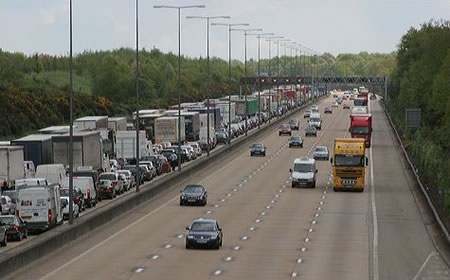
Great stuff over at Balllardian.com, where Tim Chapman interviews Iain Sinclair about JG Ballard.
Amongst the tit-bits are mention of a new Iain Sinclair book City of Disappearances, and discussion of the latest JG Ballard book, Kingdom Come.
Ballard and Sinclair have been intertwined for a while now, both capturing a certain sensibility of the modern urban condition, though with different approaches. Whilst Sinclair wrote an introduction to the BFI monograph on Crash!, and has pastiched Ballard in novels such as Landor's Tower, Ballard returns the compliment in Kingdom Come:
[Tim Champman, Ballardian] "With Kingdom Come, as you say, you were given this assignment to destroy Bluewater. Did you fail him? Does he have to do it himself?"
[Iain Sinclair] "I did my best — I gave it a good
kicking in the book. Bluewater I thought was one of the most de-energising places on the face of the earth. It’s down in this chalk quarry, which makes it different from any other huge mall. Essentially it’s just a car park — the convenience is that it’s somewhere you can put your car. Shopping is completely separate from it."
Ballard is as usual tacking contentious stuff by advocating terrorism in these end days, perhaps continuing the theme of middle-class revolt from Millennium People, this time from the viewpoint of a suburban town called Brooklands on the outskirts of London, along the M25. It starts with a great opening paragraph:
"The suburbs dream of violence. Asleep in their drowsy villas, sheltered by benevolent shopping malls, they wait patiently for the nightmares that will wake them into a more passionate world."
Great stuff. And there's more great lines within:
"People in London can't grasp that this is the real England. Parliament, the West End, Bloomsbury, Notting Hill, Hampstead - they're heritage London, held together by a dinner party culture. Here, around the M25, is where it's really happening. This is today's England, but people are bored. They're out on the edge, waiting for something big and strange to come along."
However, as a whole the book doesn't seem to hold together too well, it lacks the sheen of veracity that makes Millennium People so great . As with most Ballard books, there's not much characterisation, and everyone essentially speaks with Ballard's voice, and are prone to pompous speechifying.
Most of the ideas in Kingdom Come are repeated in Balllard's recent diary entry in the New Statesman - A Fascists Guide to the Premiership. - a brilliant title that could have done with a more considered content.
According to the Blackwells web site, JG Ballard is supposed to be talking at the Institute of Education on the 14th September, but as the interview makes clear, he doesn't get out much, so whether he'll show up or not remains to be seen.
Recently, Sinclair was interviewed by Koolhaas at the Serpentine Gallery 24-hour interview-athon, which prompts further cross-over influence/inspiration:
[Tim Chapman] It’s interesting you mention Koolhaas. At the architecture exhibition here at the Barbican, Future City: Experiment and Utopia in Architecture [1956-2006], there’s an installation of a theoretical work by Koolhaas, Exodus [1972], which is about placing a great strip of ultra-luxury accommodation across London so it divides it in two, and seeing what’ll happen. I thought that’s an unwritten Ballard story.
Sinclair also mentions doing a version of London Orbital based in Bejing, following the 7 orbital motorways around the Chinese capital.
